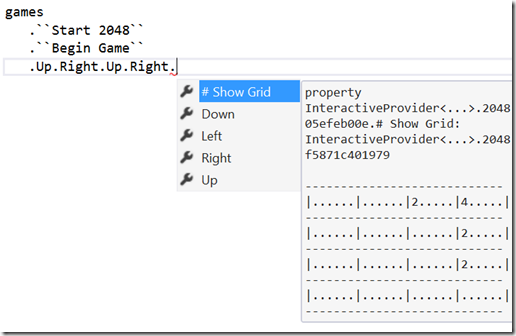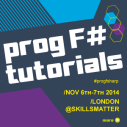This Saturday saw the Developer Developer Developer! (DDD) East Anglia conference in Cambridge. DDD events are organized by the community for the community with the agenda for the day set through voting.
T-Shirts
The event marked a bit of a personal milestone for me, finally completing a set of DDD regional speaker T-Shirts, with a nice distinctive green for my local region. Way back in 2010 I chanced a first appearance at a DDD event with a short grok talk on BDD in the lunch break at DDD Reading. Since then I’ve had the pleasure of visiting and speaking in Glasgow, Belfast, Sunderland, Dundee and Bristol.
Talks
There were five F# related talks on the day, enough to fill an entire track:
Tomas kicked off the day, knocking up a simple e-mail validation library with tests using FsUnit and FsCheck. With the help of Project Scaffold, by the end of the presentation he’d generated a Nuget package, continuous build with Travis and Fake and HTML documentation using FSharp.Formatting.
Anthony’s SkyNet slides are already available on SlideShare:
ASP.Net was also a popular topic with a variety of talks including:
All your types are belong to us!
The title for this talk was borrowed from a slide in a talk given by Ross McKinlay which references the internet meme All your base are belong to us.
You can see a video of an earlier incarnation of the talk, which I presented at NorDevCon over on InfoQ, where they managed to capture me teapotting:

The talk demonstrates accessing a wide variety of data sources using F#’s powerful Type Provider mechanism.
The World at your fingertips
The FSharp.Data library, run by Tomas Petricek and Gustavo Guerra, provides a wide range of type providers giving typed data access to standards like CSV, JSON, XML, through to large data sources Freebase and the World Bank.
With a little help from FSharp.Charting and a simple custom operator based DSL it’s possible to view interesting statistics from the World Bank data with just a few key strokes:
The JSON and XML providers give easy typed access to most internet data, and there’s even a branch of FSharp.Data with an HTML type provider providing access to embedded tables.
Enterprise
The SQLProvider project provides type access with LINQ support to a wide variety of databases including MS SQL Server, PostgreSQL, Oracle, MySQL, ODBC and MS Access.
FSharp.Management gives typed access to the file system, registry, WMI and Powershell.
Orchestration
The R Type Provider lets you access and orchestrate R packages inside F#.
With FCell you can easily access F# functions from Excel and Excel ranges from F#, either from Visual Studio or embedded in Excel itself.
The Hadoop provider allows typed access to data available on Hive instances.
There’s also type providers for MATLAB, Java and TypeScript.
Fun
Type Providers can also be fun, I’ve particularly enjoyed Ross’s Choose Your Own Adventure provider and more recently 2048:

Write your own Type Provider
With Project Scaffold it’s easier than ever to write and publish your own FSharp type provider. I’d recommend starting with Michael Newton’s Type Provider’s from the Ground Up article and video of his session at Skills Matter.
You can learn more from Michael and others at the Progressive F# Tutorials in London this November:

DDD North
The next DDD event is in Leeds on Saturday October 18th, where I’ll be talking about how to Write your own Compiler, hope to see you there :)